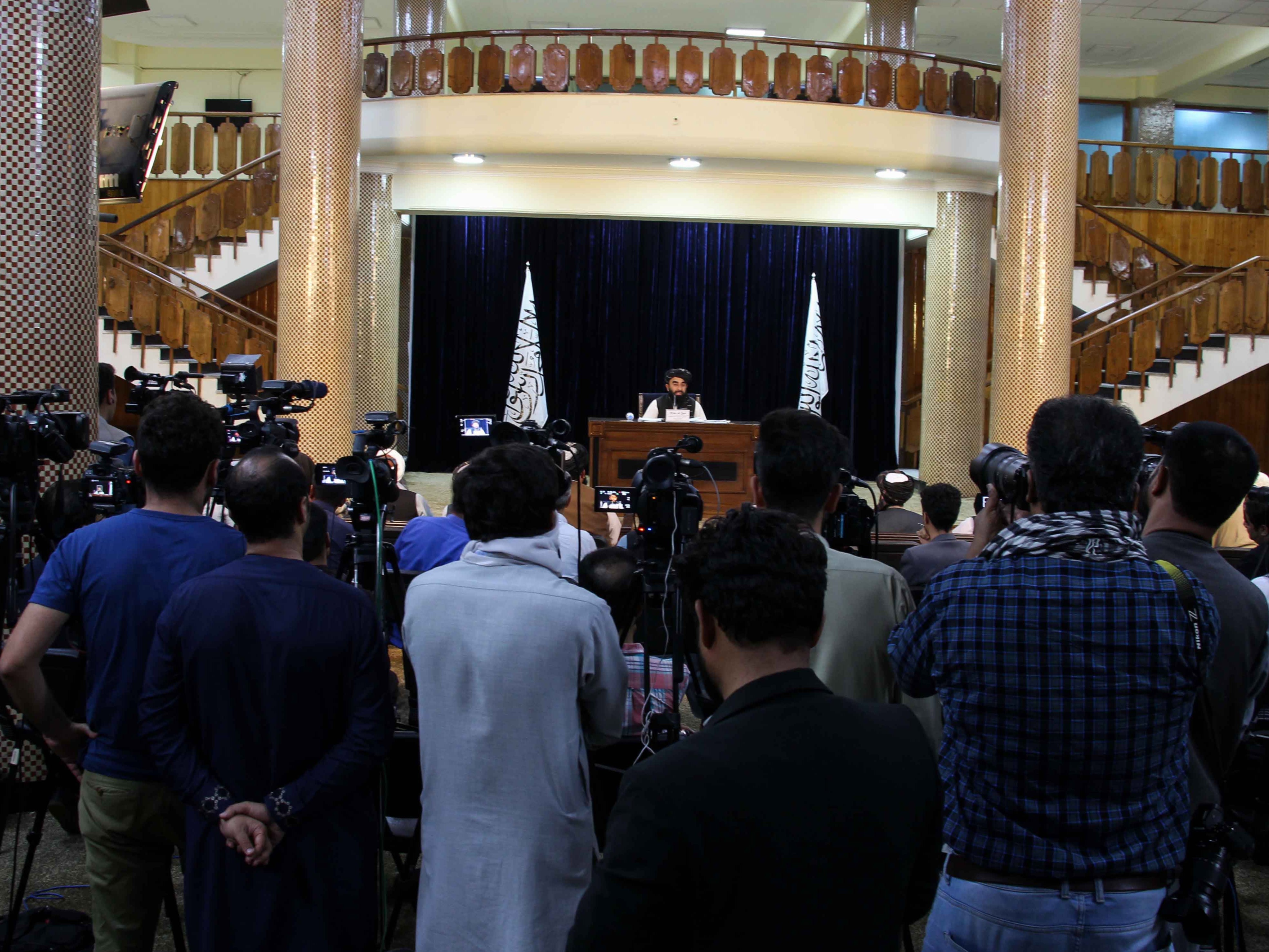Taliban announce formation of new interim government
Taliban’s spiritual leader makes rare statement as Sarajuddin Haqqani, head of the militant Haqqani network, is named acting interior minister

Your support helps us to tell the story
From reproductive rights to climate change to Big Tech, The Independent is on the ground when the story is developing. Whether it's investigating the financials of Elon Musk's pro-Trump PAC or producing our latest documentary, 'The A Word', which shines a light on the American women fighting for reproductive rights, we know how important it is to parse out the facts from the messaging.
At such a critical moment in US history, we need reporters on the ground. Your donation allows us to keep sending journalists to speak to both sides of the story.
The Independent is trusted by Americans across the entire political spectrum. And unlike many other quality news outlets, we choose not to lock Americans out of our reporting and analysis with paywalls. We believe quality journalism should be available to everyone, paid for by those who can afford it.
Your support makes all the difference.The Taliban named a caretaker government on Tuesday dominated by its own overwhelmingly ethnic Pashtun leaders, setting aside its own promises to form an inclusive administration that drew from members of the country’s disparate groups.
Mullah Hassan Akhund, who served prominently in the Taliban’s late 1990s government, was named head of the caretaker cabinet, with Mullah Abdul Ghani Baradar, a co-founder of the Taliban and the chief negotiator with the United States, serving as his deputy.
Abdul Salam Hanafi, an ethnic Uzbek, was named as his second deputy. A long-time Taliban member, he is unlikely to satisfy demands for inclusivity and minority representation.
Amir-Khan Motaqi, will serve as foreign minister of a government that desperately seeks international recognition as well as domestic legitimacy. Sarajuddin Haqqani, acting interior minister, is head of the militant group known as the Haqqani network and is wanted by the FBI on terrorism charges.
Hovering above it the government will be Haibatullah Akhundzada, the Taliban’s spiritual leader with the title of leader of the faithful. The 60-year-old senior cleric who once oversaw the Taliban’s shariah court system, will serve as Afghanistan’s supreme leader, providing direction to the governing team.
On Tuesday evening Mr Akhundzada made his first public statement since the Taliban took control of the country. In a written statement he said the government would start functioning “at the earliest” opportunity. He also said that the Taliban was committed to international laws, treaties and commitments “not conflicting with Islamic law”. The leader, who rarely if ever makes public appearances, said that all matters of governance and life in Afghanistan will be regulated by sharia.
There were apparently no members of the country’s Tajik, Hazara or other minorities in the caretaker government. There were no women named as ministers or deputy ministers.
Zabiullah Mujahid, the Taliban’s spokesman, said during a 30-minute press conference in Kabul, that the cabinet was temporary, formed hastily to manage the country’s affairs during an acute crisis that followed their mid-August military victory over the Afghanistan government propped up by the US for 20 years.
“Some of the ministers have not been announced and we are dealing with this,” he said, as he was peppered by reporters with questions about the lack of diversity in the cabinet. “Some of the ministries are still remaining. We will definitely find qualified and professional people. This cabinet will only handle the current situation.”
But Mr Mujahid announced not just ministers but also deputy ministers for even lesser ministries that included agriculture, electricity and migration, and it was unclear what other posts could be filled.
“This cabinet has been formed after deep, deep consultations with elders,” he said.
The cabinet announcement on Tuesday followed the departure of international troops at the end of August.
The Taliban previously ruled the country between 1996 and 2001. That period was characterised by violent repression of women, disregard for political rights and a campaign of ethnic cleansing against the country’s Shia minority.
Taliban leaders insist they have changed their ways since then. But video posted to social media showed the extremist group’s enforcers pummeling peaceful protesters on Tuesday while firing weapons into the air to scare them off. Journalists complained to Mr Mujahid that Taliban gunmen had smashed their equipment while they were trying to cover the unrest.
Mr Mujahid defended the Taliban against accusations that it had suppressed protests. He noted that fighters policing the city streets lack experience dealing with protests, and urged people not to demonstrate and journalists not to cover political unrest. “In this period of time, we can’t allow demonstrations,” he said.
On Monday, the Taliban claimed victory in the Panjshir valley, the last province holding out against it. Pictures on social media showed Taliban members standing in front of the Panjshir governor’s compound after days of fighting with the National Resistance Front of Afghanistan, commanded by Ahmad Massoud. Mr Massoud denied that his force, consisting of remnants of the Afghan army as well as local militia fighters, was beaten, and tweeted that “our resistance will continue”.
Join our commenting forum
Join thought-provoking conversations, follow other Independent readers and see their replies
Comments